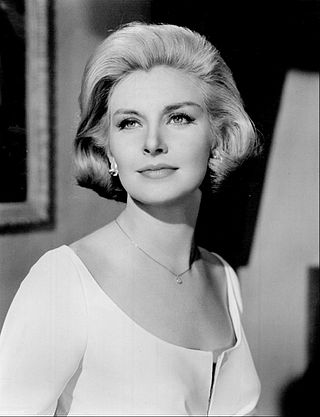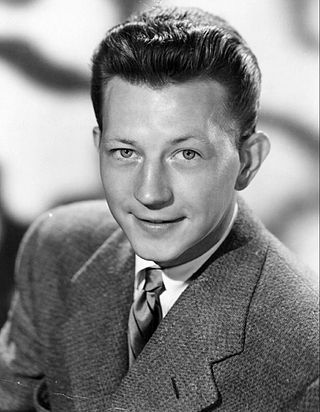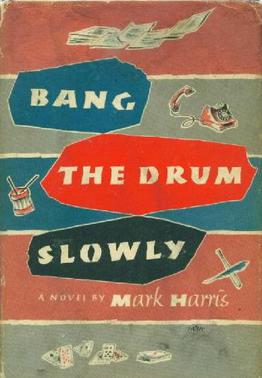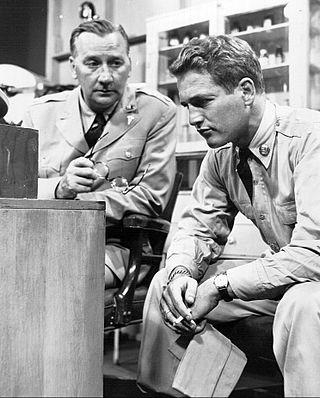
George Peppard was an American actor. He secured a major role as struggling writer Paul Varjak when he starred alongside Audrey Hepburn in Breakfast at Tiffany's (1961), and later portrayed a character based on Howard Hughes in The Carpetbaggers (1964). On television, he played the title role of millionaire insurance investigator and sleuth Thomas Banacek in the early-1970s mystery series Banacek. He played Col. John "Hannibal" Smith, the cigar-smoking leader of a renegade commando squad in the 1980s action television series The A-Team.

Joanne Gignilliat Trimmier Woodward is an American retired actress. She made her career breakthrough in the 1950s and earned esteem and respect playing complex women with a characteristic nuance and depth of character. Her accolades include an Academy Award, three Primetime Emmy Awards, a British Academy Film Award, three Golden Globe Awards, and a Screen Actors Guild Award. She is the oldest living winner of the Academy Award for Best Actress.

Donald David Dixon Ronald O'Connor was an American dancer, singer and actor. He came to fame in a series of films in which he co-starred, in succession, with Gloria Jean, Peggy Ryan, and Francis the Talking Mule.
Mark Harris was an American novelist, literary biographer, and educator, remembered for his baseball novels featuring Henry Wiggen, particularly Bang the Drum Slowly. Harris's obituary in The Denver Post calls him "one of that legion of under-the-radar writers who for decades consistently turned out excellent novels and went largely unsung as he did...Harris said of his books that 'they are about the one man against his society and trying to come to terms with his society, and trying to succeed within it without losing his own identity or integrity.' He might have said the same thing of himself."
Michael Moriarty is an American-Canadian actor. He received an Emmy Award and Golden Globe Award for his role as a Nazi SS officer in the 1978 miniseries Holocaust and a Tony Award in 1974 for his performance in the play Find Your Way Home. He played Executive Assistant District Attorney Benjamin Stone for the first four seasons (1990–1994) of the television show Law & Order. Moriarty is also known for his roles in films such as Bang the Drum Slowly, Who'll Stop the Rain, Q: The Winged Serpent, The Stuff, Pale Rider, Troll, Courage Under Fire, and Shiloh.

Bang the Drum Slowly is a novel by Mark Harris, first published in 1956 by Knopf. The novel is the second in a series of four novels written by Harris that chronicles the career of baseball player Henry W. Wiggen. Bang the Drum Slowly was a sequel to The Southpaw (1953), with A Ticket for a Seamstitch (1957) and It Looked Like For Ever (1979), completing the tetralogy of baseball novels by Harris.

Playhouse 90 is an American television anthology drama series that aired on CBS from 1956 to 1960 for a total of 133 episodes. The show was produced at CBS Television City in Los Angeles, California. Since live anthology drama series of the mid-1950s usually were hour-long shows, the title highlighted the network's intention to present something unusual: a weekly series of hour-and-a-half-long dramas rather than 60-minute plays.

The United States Steel Hour is an anthology series which brought hour-long dramas to television from 1953 to 1963. The television series and the radio program that preceded it were both sponsored by the United States Steel Corporation.

Albert Salmi was an American actor of stage, film, and television. Best known for his work as a character actor, he appeared in over 150 film and television productions.

The Kaiser Aluminum Hour is a dramatic anthology television series which was broadcast in prime time in the United States from July 3, 1956, through June 18, 1957, by NBC.

Bang the Drum Slowly is a 1973 American sports drama film directed by John D. Hancock, about a baseball player of limited intellect who has a terminal illness, and his brainier, more skilled teammate. It is a film adaptation of the 1956 baseball novel of the same name by American author Mark Harris. It was previously dramatized in 1956 on the U.S. Steel Hour with Paul Newman, Albert Salmi and George Peppard.

"Days of Wine and Roses" was a 1958 American teleplay by JP Miller which dramatized the problems of alcoholism. John Frankenheimer directed the cast headed by Cliff Robertson, Piper Laurie and Charles Bickford.

Wire on the Box: 1979 is a live album and DVD by English rock band Wire. Whilst recorded in 1979, it was released on 4 October 2004 as the first in a series of archival releases on Wire's own Pinkflag label. It features the complete live television recording for the German Rockpalast music television show, broadcast by Westdeutscher Rundfunk (WDR). The live set consists largely of tracks from 1978's Chairs Missing and the then-yet-to-be-released 154, and is the second live recording to be released from Wire's original phase since 1981's Document and Eyewitness.
Henry Wiggen was a fictional baseball player who was the subject of four novels by Mark Harris: The Southpaw (1953), Bang the Drum Slowly (1956), A Ticket for a Seamstitch (1957), and It Looked Like For Ever (1979). Wiggen, who was born on July 4, 1931 in Perkinsville, New York, joined the fictitious "New York Mammoths" in 1952 as a pitcher. His teammates nicknamed him "Author", because he was always writing.

Playwrights '56, a.k.a. The Playwright Hour, is a 60-minute live American dramatic anthology series produced by Fred Coe for Showtime Productions. Twenty episodes aired on NBC from October 4, 1955, to June 19, 1956. It shared a Thursday time slot with Armstrong Circle Theatre.

Thomas Ligon is an American actor of Cajun ancestry. He appeared in the films Paint Your Wagon, Jump, and Bang the Drum Slowly as well as the television series The Young and the Restless, and Oz.

"Little Moon of Alban" was an American television play broadcast by NBC on March 24, 1958, as part of the television series, Hallmark Hall of Fame. It was written by James Costigan, directed by George Schaefer, and starred Julie Harris and Christopher Plummer.
"Sacco-Vanzetti Story" is a two-part American television play that was broadcast on June 3, 1960, and June 10, 1960, as part of the NBC Sunday Showcase series.
"The Hostess with the Mostes'" was an American television play broadcast live on March 21, 1957, as part of the CBS television series, Playhouse 90. It was the 25th episode of the first season. Shirley Booth played the part of socialite Perle Mesta.

"The Jet Propelled Couch" is an American television play broadcast on November 14, 1957, as part of the second season of the CBS television series Playhouse 90. Burgess Meredith and James Clark directed. Donald O'Connor, David Wayne, and Peter Lorre starred.















